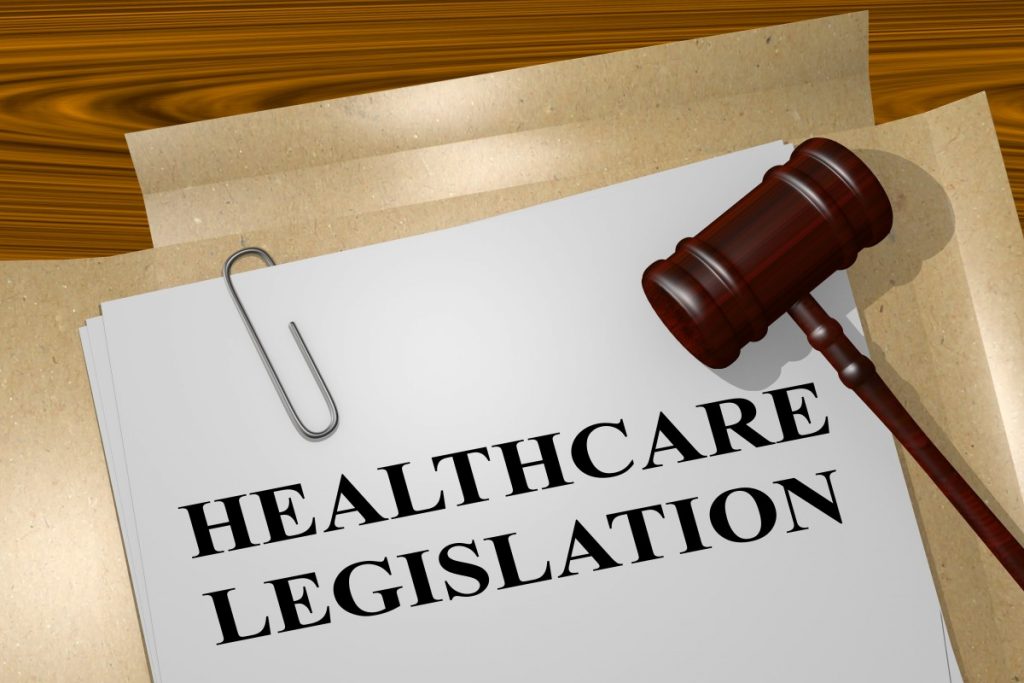Your Guide to The No Surprises Act: New Healthcare Billing Legislation

Healthcare legislation can be tricky to navigate, especially when you’ve got a million other things on your plate. However, it’s still essential to keep up with because it can impact your holistic practice, healthcare revenue cycle, and patients.
One recent example is the No Surprises Act, which affects you, your patients, and your revenue cycle. This piece of healthcare legislation essentially aims to refine the medical billing process at the federal level—and we’ll dive into the details in this article here.
Keep reading to learn more about the No Surprises Act and its effects on your holistic practice!
What Is the No Surprises Act?
To sum up the No Surprises Act in one sentence? It’s intended to comprehensively mitigate surprise medical bills, which often occur when insured patients inadvertently receive care from out-of-network providers.
At the end of 2020, this piece of healthcare legislation was signed into law to provide federal-level protections for consumers against surprise medical bills. According to the handy Key Takeaways listed for the No Surprises Act, this legislation:
- Protects patients from receiving surprise medical bills resulting from gaps in coverage for emergency services and certain services provided by out-of-network clinicians at in-network facilities, including by air ambulances.
- Holds patients liable only for their in-network cost-sharing amount, while giving providers and insurers an opportunity to negotiate reimbursement.
- Allows providers and insurers to access an independent dispute resolution process in the event disputes arise around reimbursement; the legislation does not set a benchmark reimbursement amount.
- Requires both providers and health plans to assist patients in accessing health care cost information.
This Act was part of the Consolidated Appropriations Act of 2021, which handled a variety of public health and private insurance issues, and a majority of the initiatives outlined in this legislation took effect on January 1, 2022. The Departments of Health and Human Services (HHS), Treasury, and Labor are responsible for issuing regulations and guidance to implement many of the regulations.
How Does The No Surprises Act Impact Your Holistic Practice?
While sections of this new legislation won’t apply to your holistic practice—such as sections 105 and 106 that deal with air ambulance services and charges—there are still some important parts that might impact your practice, especially if you’re contracted with private health insurance companies.
The primary effect that this healthcare legislation has on the medical billing process is that out-of-network providers can’t bill patients for excessive charges, nor can the patient be held responsible for such charges.
How Does This Healthcare Legislation Impact Your Patients?
Ultimately, the No Surprises Act leads to enhanced transparency and patient engagement in the financial workings of your holistic practice. By increasing patient understanding of the medical billing process and what they are responsible for in the healthcare revenue cycle, patients can make informed decisions regarding their care.
Patient education and patient engagement are vital for your holistic practice, regardless of accepting insurance. Initiating the conversation with your patients about their responsibility for paying for services rendered is helpful because it encourages their questions and concerns. Utilizing these lines of communication can build rapport and trust between your patients and your holistic practice.

3 Medical Billing Tips for Your Holistic Practice
Whether your holistic practice is significantly or minimally, your healthcare revenue cycle and medical billing process can always benefit from a few tips:
Keep Patient Information Updated
From contact information to insurance carriers and more, there’s a lot of patient information that can change over time. Inaccurate patient information can lead to denied claims, which can throw a wrench in your holistic practice’s revenue cycle. Be sure to verify your patient’s data hasn’t changed or update their profile with new information on a regular basis to ensure nothing slips through the cracks.
Use Appropriate Codes and Modifiers
Medical coding accuracy plays a critical role in your practice’s revenue cycle; inaccurate or incomplete claims that use the wrong codes or modifiers can result in rejected claims that need to be reworked. Any additional time spent reworking claims means it’s costing your practice time and money instead of bringing in your reimbursement! Keep a list of frequently-used codes and modifiers so that you won’t have to look too hard for them when you’re filing claims.
Streamline Your Medical Billing Process by Partnering with a Medical Billing Firm!
Medical billing firms make it their job to stay updated on new healthcare legislation initiatives and ensure your revenue cycle is as optimized as possible. If your holistic practice is swamped with piles of claims that need to be filed or reworked, then it’s time to consider partnering with a medical billing firm to handle it.
With a medical billing partner, you’ll enjoy an immediate boost to your revenue cycle, more time to focus on patients, develop strategic moves for your practice, and gain insight into your financial performance.
Partner with Holistic Billing Services Today!
The experts at Holistic Billing Services are as invested in your success as you are—we work as an extension of your holistic practice! We’ve got experience in your specialty and can help you navigate the complexities of the medical coding and billing process so that you can focus on what matters most: delivering great care to your patients.
We offer a variety of acupuncture billing services, massage therapy billing services, and chiropractic billing services, including:
- Online insurance verifications
- EHR and SOAP documentation
- Insurance claims processing
- Insurance credentialing


